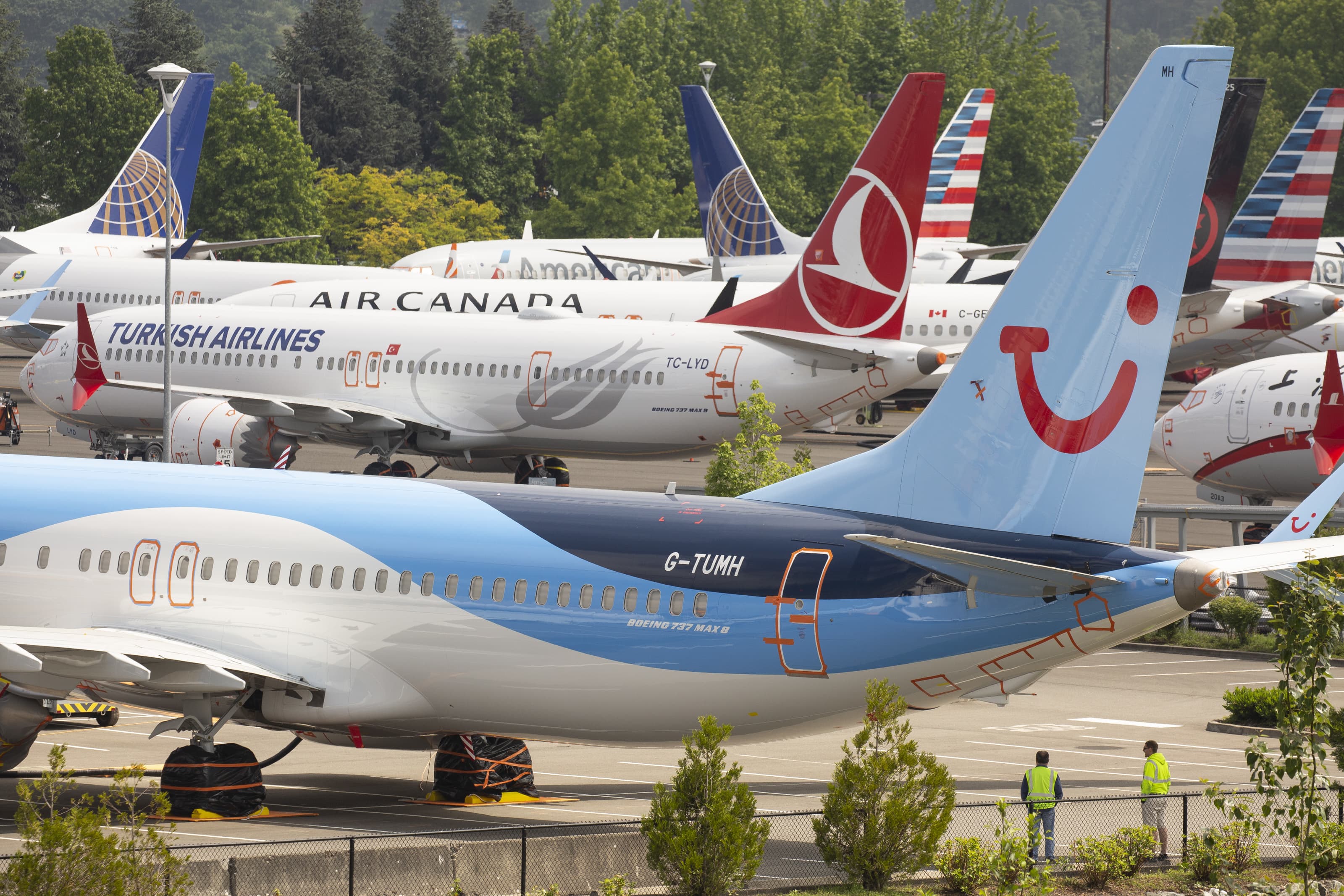Boeing's 737 Max troubles deepen, taking airlines, suppliers with it

Boeing shares continued their slide Monday after explosive messages last week revealed a top pilot had concerns about a system on the 737 Max that was later implicated in two fatal crashes.
Several Wall Street analysts downgraded Boeing, fretting about the fallout from the crisis that has barred the manufacturer from delivering its best-selling planes that make up around 40% of its profit.
Boeing's stock fell 3.8% Monday to a two-month low of $331.06, shaving 88 points off the Dow Jones Industrial Average, but had pared losses from earlier in the session.
The messages made public Friday included an exchange from a top Boeing pilot to a colleague in 2016 that expressed his worries about an aggressive flight-control system on the Max, whose performance he called "egregious." The pilot, who now works for Southwest, said in the exchange that he "unknowingly" lied to regulators. That same pilot months later told the FAA to remove the system, known as MCAS, from pilot procedures and training materials.
The FAA said Boeing knew about the messages for months and scolded Boeing in a letter for not releasing the documents earlier. Boeing defended its training materials for the 737 Max, which regulators deemed safe in 2017, and said it told regulators on "multiple occasions" about the broadened capabilities of the now-questioned system.
UBS on Monday downgraded Boeing to a neutral rating from buy.
"Our working thesis has been that the failures on the 737 Max development by the company centered on fault intolerant design compounded by poor assumptions of pilot response," it wrote in its downgrade. "We now have to append that assessment further based on source material provided to Congress and the FAA on Friday that reinforces the perception of and heightens the potential of incomplete disclosure, which inherently puts more money/trust & time at stake."
Boeing's board is holding a regularly scheduled meeting in San Antonio that concludes Monday, a spokesman said. The board stripped CEO Dennis Muilenburg of his chairmanship on Oct. 11 to focus on getting the Max back into service.
The recent news is putting Muilenburg under even more pressure, however.
An employee drills holes for rivets in a frame inside a Boeing 737 fuselage during assembly at Spirit AeroSystems in Wichita, Kansas.
Daniel Acker | Bloomberg | Getty Images
Some of Boeing's 737 Max suppliers are also trading lower. Spirit Aerosystems, which makes fuselages for the planes, lost 4.8% on Monday, after a downgrade to neutral from UBS. General Electric, which makes engines for the 737 Max in a joint venture with France's Safran SA, fell 1.9%.
Stifel downgraded Southwest Airlines, which operates an all-Boeing 737 fleet and is the biggest customer for the Max in the U.S. Stifel said the carrier could be near a "tipping point" where the Max grounding has gone on so long it could push the Southwest to consider a merger or acquisition, and suggests New York-based low-cost airline JetBlue Airways, which operates Airbus narrow-body planes. Southwest's CEO has said it would take years to diversify Southwest's fleet. Southwest declined to comment on the note. JetBlue didn't immediately respond to a request for comment.
Southwest's shares fell 0.5%, while JetBlue's advanced 3.3%.
Boeing's Max customers say they've lost millions in revenue as the grounding drags on. Southwest expects the planes to return to its fleet for commercial service in early February, while American and United are currently targeting a return to service in January.
Correction: Stifel downgraded Southwest. An earlier version misstated the name of the firm. American and United are currently targeting a return to service in January. An earlier version misstated one of the airlines.
Read More
No comments